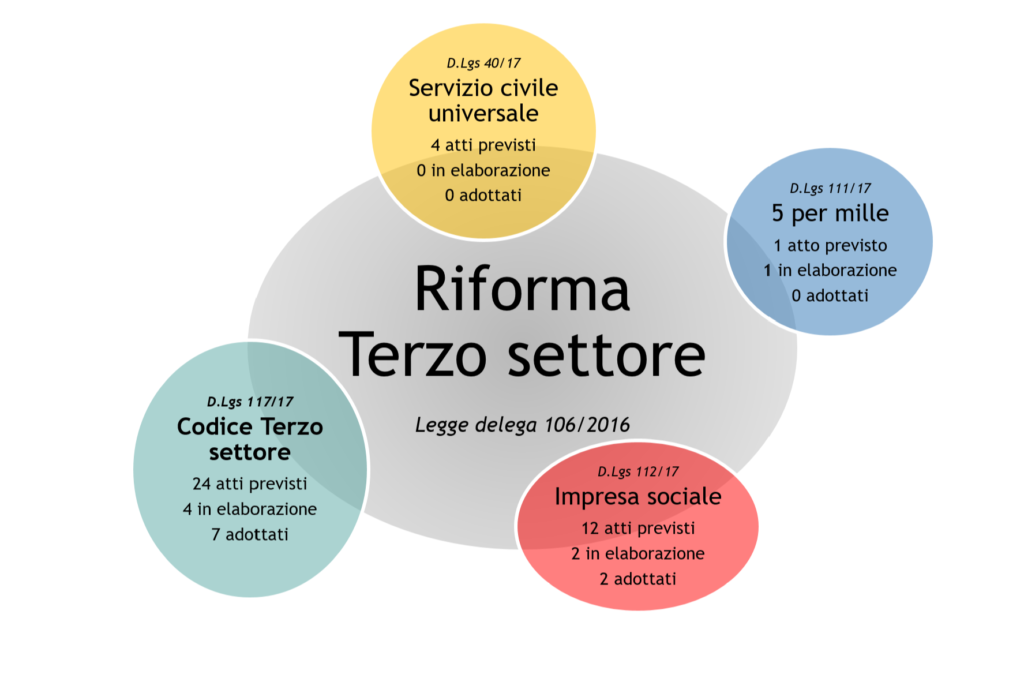Three years after the Parliament approved the reform of the third sector (Legge delega 106/2016), the law remains inactive. The law was passed in May 2016 after a participated consultation process but out of the 41 regulations that the government needs to pass for the implementation of the law, only 9 have been approved. 4 are underway. Among the issues to be tackled by the regulations are self-financing and the Five per thousand (Cinque per mille), the law which allows taxpayers to allocate part of their income tax to non-profit organisations. Here is the summary of the development of regulations by the Forum of the third sector: http://www.forumterzosettore.it/files/2019/03/prospetto-RIFORMA-DEL-TERZO-SETTORE-12_marzo2019.pdf.
As the pressures on progressive civil society have increased under the current government, associations are reading this as a further signal of confrontation and are afraid that the stalled reform will negatively impact the sector’s financial viability.
Francesca Chiavacci, President of the Italian association ARCI commented: “Paradoxically […] the legislative framework which finally recognizes the full legitimacy of the sector has raised concern, confusion and anxiety in thousands of organizations and millions of citizens, workers and volunteers. […]
Economic resources are not secondary; they are central to the development of that civil Italy that has been and still is today the backbone of social cohesion, which is increasingly eroded or attacked. The practice of self-financing through [civil society’s] traditional activities must be safeguarded, also in order to guarantee the independence and autonomy of associations. […]
Today, the reform seems to be advancing, but it is worth noting that the recent measures approved are only those that have been closed for almost a year in the drawer (different activities, social budget guidelines) and therefore date back to the previous parliament. Meanwhile, what this government has really “generated” is a real attack on the Third Sector through the abolition of the reduced rate of IRES and finally the anti-corruption law.”

Source: Fourm del terzo settore

